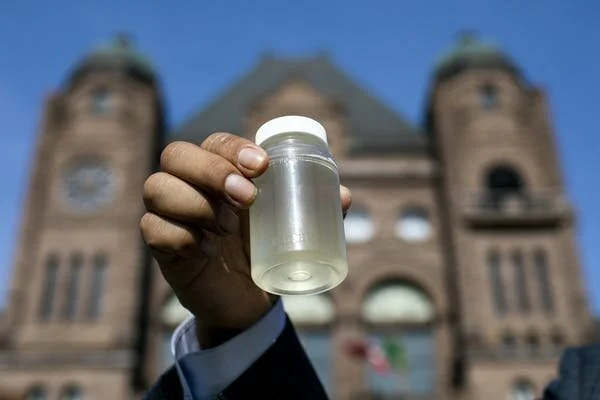Iqaluit residents are encouraged to fill water jugs or other containers to help them get through Wednesday’s one-day water shutdown. It’s one of the tips the City of Iqaluit listed in a public service announcement to help prepare for the city-wide disruption. The city is shutting water off on Sept. 1 from 8 a.m. to 4 p.m. to allow for the replacement of key valves to the city’s water infrastructure.
Water crisis in First Nations communities runs deeper than long-term drinking water advisories
In October, more than 250 members of the Neskantaga First Nation were evacuated to Thunder Bay after an oily sheen was found on their reservoir. The discovery left the community, located in northern Ontario, without access to running water. The evacuation drew attention to the federal government’s 2015 commitment to end all on reserve long-term drinking water advisories (in place for more than one year) by March 31, 2021. Neskantaga has been living under a boil-water advisory for 26 years.
Living in a flood zone? Don't use well water, health officials warn
Even as floodwaters across the region stabilize, health officials are warning people living in flood zones — particularly those who get water from wells — to remain vigilant. Hundreds of homes have been damaged by the devastating floods that have washed through eastern Ontario and western Quebec, forcing residents and volunteers to spend days filling and loading up sandbags to protect their communities.
First Nation in Yukon tests new machines to pull water from air
The Liard First Nation in Yukon is testing a new method of obtaining clean water — pulling it out of the air. An atmospheric water generator installed in Watson Lake is gathering moisture from the air like a dehumidifier, then purifying it for drinking by using UV light. When working properly, the machine can generate 30 litres a day, which is enough for a family's daily needs.





